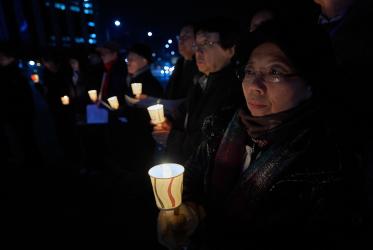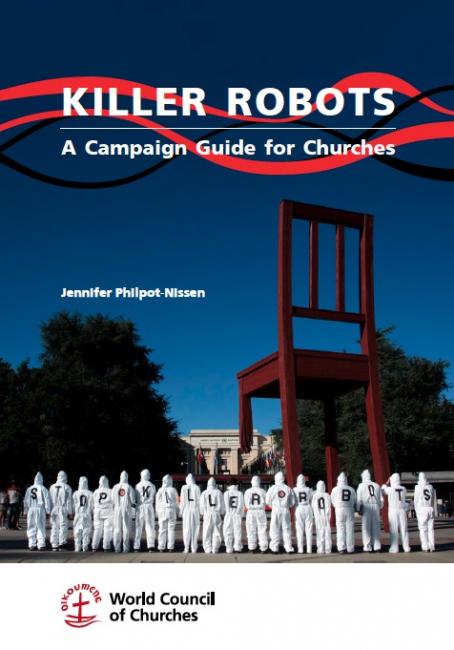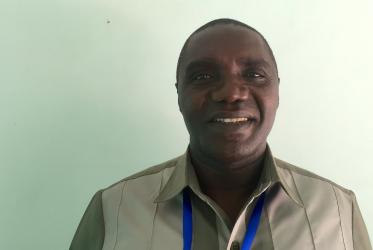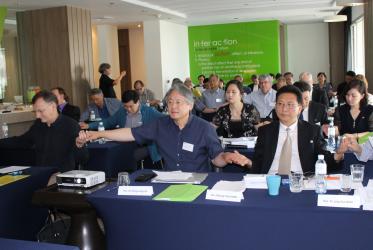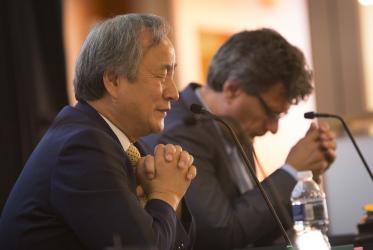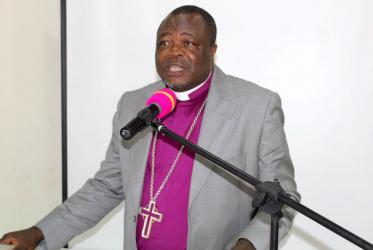Displaying 1 - 20 of 23
Voice of churches vital during UN women’s rights talks
28 March 2024
ACT Alliance general secretary: “equity is not negotiable”
26 September 2023
Strengthening Christian Perspectives on Human Dignity and Human Rights
Perspectives from an International Consultative Process
19 August 2022
Peace and unity on the Korean Peninsula matters globally
25 February 2021
Bishop Hee-Soo Jung: “Prayer is a radical action”
11 December 2020
Cameroon conference on peace empowers religious leaders
30 November 2020









